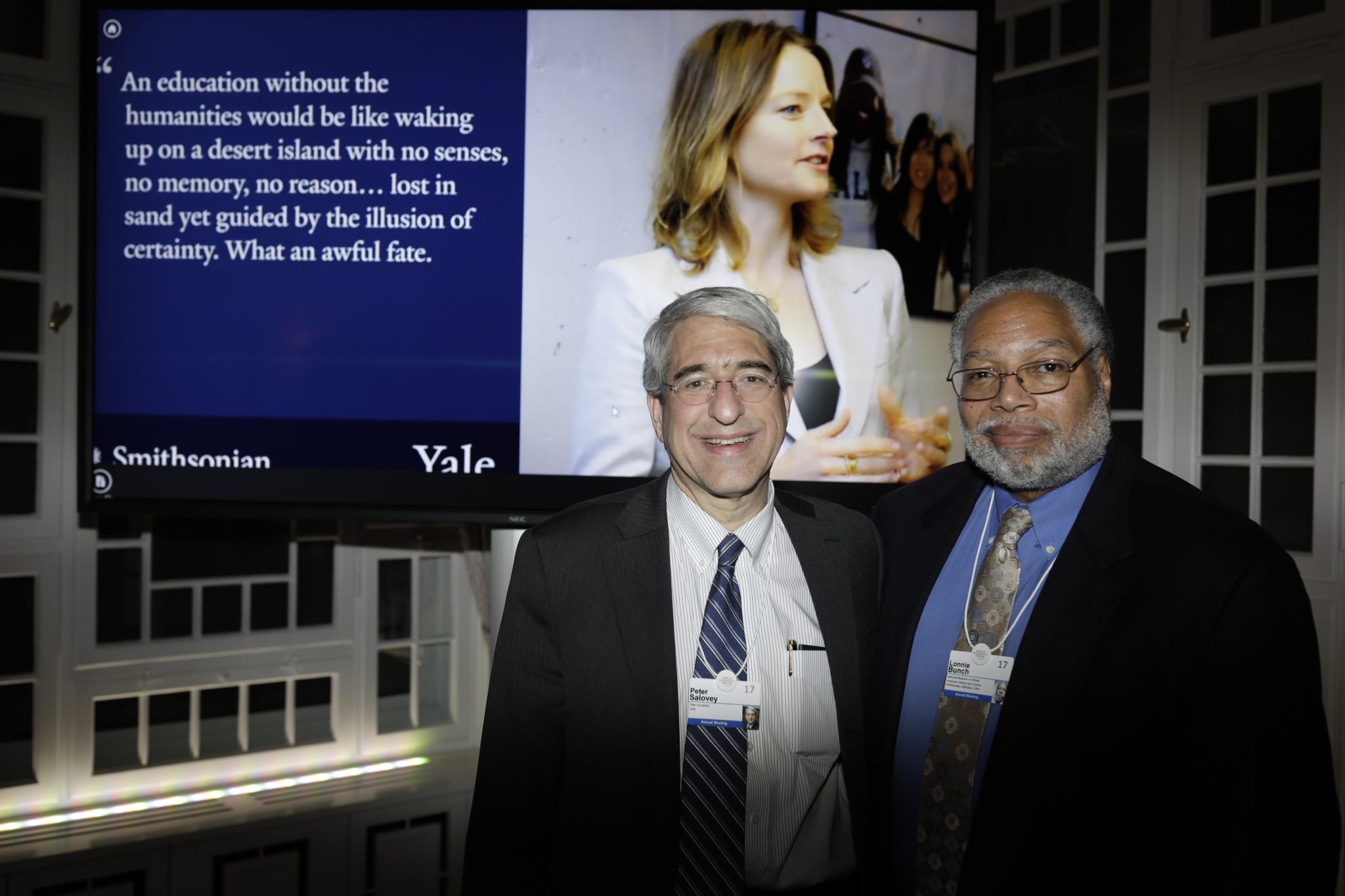
Courtesy of Yale University Office of the President
As President Donald Trump prepared to take the oath of office in Washington, D.C., last week, University President Peter Salovey joined hundreds of politicians, businessmen and academics at the annual World Economic Forum in Davos, Switzerland.
Since the early 2000s, the Davos gathering has been a regular stop for Yale presidents, an opportunity to court donors and showcase the University brand. Former University President Richard Levin attended the forum every year for the final decade of his presidency, and last week’s trip was the fourth of Salovey’s term.
But this year, the forum — which ran from Tuesday to Friday last week — was overshadowed by events thousands of miles away, as a populist who railed against political and economic elites was sworn in as president of the United States.
“There was a lot of talk by people there — how did we miss this?” said Salovey, who followed the inauguration online during his flight home. “How did we miss growing populism on both the left and the right? How did we miss that ideas that were so broadly embraced, like globalization and free trade, would now be challenged in so many places?”
He added that in the past Davos has sometimes seemed like “a bubble” cut off from the needs of regular citizens. “There was a lot of self-consciousness about that in Davos this year,” he said.
Salovey was joined in Switzerland by three Yale faculty members: law professor Beth Noveck, bioethics lecturer Wendell Wallach and economist Robert Shiller.
Shiller, who was attending Davos for the 14th time, said Trump was the primary topic of conversation throughout the forum.
“Everyone was talking about Trump. It’s amazing how he’s captured the attention of the world,” he said. “It was a more uncomfortable meeting, because a lot of people have been feeling uncomfortable ever since the Trump election.”
Still, the looming prospect of the Trump presidency did not prevent Salovey from fulfilling his duties as the University’s representative. The Yale president travels to Davos partly to attend the Global University Leaders Forum, a gathering of the presidents of major research universities across the world. And crucially, the annual trip also gives the president an opportunity to meet with wealthy alumni interested in donating to Yale.
“I meet people in Davos and have conversations about their interest in being generous to the University,” Salovey said. “Anytime someone makes a substantial gift to the University, it’s generally after a series of conversations. Often the conversations I’m having at Davos are part of a process.”
Historically, Yale has also used the trip to showcase a particular aspect of the academic work of the University. In 2016, Salovey spoke about the importance of preserving cultural heritage at the forum. This year, at a reception last Tuesday night held by Yale and the Smithsonian, he used his speech to highlight the value of the humanities.
Salovey told the News that Yale’s focus on the humanities complemented the broader theme of the forum — “responsive and responsible leadership” — and emphasized the importance of a liberal arts education in the current political climate.
“One of the best ways to be a responsive and responsible leader is to come to leadership from the background of a liberal education,” a tool that allows people to “understand the enduring problems faced by our common humanity,” he said.
In an interview with the News, history professor Beverly Gage ’94 said that in the weeks since the presidential election, many Americans have pondered questions that are crucial to the study of the humanities.
“Where do we stand in history? Why is this happening? What does our society stand for? What are our fundamental values?” Gage said. “All those types of questions are questions that lots of disciplines deal with, but that the humanities have a fundamental interest in and a fundamental contribution to.”
Gage was one of several prominent faculty and alumni featured on posters hanging at the Yale-Smithsonian reception. The posters displayed short quotes from Yalies reflecting on the value of the humanities in different walks of life, from politics to the business world.
On one of them, a distinguished Yale Law School grad argued that “the humanities are crucial for informing and empowering citizenship” at times when democratic values come under threat.
Her name? Hillary Clinton LAW ’73.







